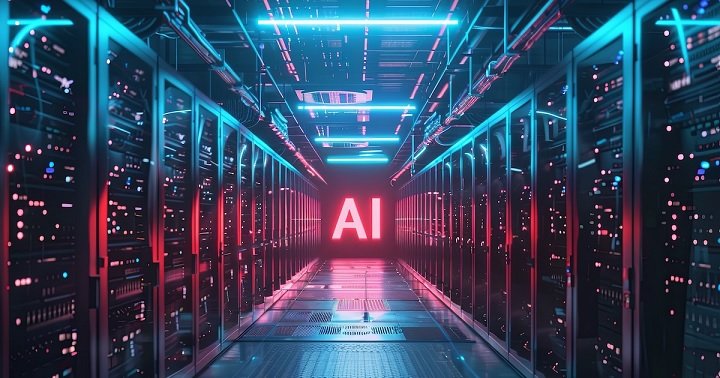Table of Contents
- Introduction to AI in Data Centers
- The Integration of AI Technologies
- Benefits of AI for Data Center Efficiency
- Enhancing Security with AI
- AI and Predictive Maintenance
- The Future of AI in Data Centers
- Challenges and Considerations
Introduction to AI in Data Centers
Data centers are evolving swiftly as they form the digital backbone of our globally connected world. All transactions, interactions, and information that flow through cyberspace are processed and stored within these facilities. However, managing these vast repositories has become increasingly challenging as data volumes grow exponentially. Enter artificial intelligence: a revolutionary force transforming data center operations through an advanced, AI-powered solution that enhances performance, scalability, and efficiency. By harnessing AI, data centers can optimize processes that once required intensive human oversight, reducing operational costs and the margin for error.
The potential of AI within data centers is not merely limited to automating routine tasks. It offers profound insights that can drive strategic decisions. Through advanced predictive analytics, AI aids in foreseeing operational needs, preventing bottlenecks, and enhancing overall data throughput. This transformation responds to digital ecosystems that demand instant connectivity and seamless information flow—imperatives for modern businesses and customer-centric applications.
The Integration of AI Technologies
Integrating AI technologies in data centers is a strategic move combining automation, machine learning, and data analytics to transform operations fundamentally. This fusion enables the automation of repetitive tasks, liberating human resources for more critical, value-added functions. Machine learning algorithms learn from vast datasets to recognize patterns and enhance predictive analytics, providing data centers with the insight needed to operate more smoothly.
As highlighted in a Forbes article, organizations that have incorporated AI into their data centers are witnessing remarkable efficiency improvements. Enhanced energy management systems have curtailed costs significantly, demonstrating AI’s capability for precise, data-driven decision-making. The harmonious integration of these technologies optimizes current capabilities and readies data centers for future-proof scalability and adaptation to emerging digital needs.
Benefits of AI for Data Center Efficiency
The application of AI within data centers offers numerous efficiency benefits, leading to an optimized performance landscape that caters to modern operational demands. A primary advantage is the intelligent management of energy consumption. AI-driven systems can anticipate cooling requirements and adjust settings dynamically, reducing energy waste and increasing the overall sustainability of operations.
Moreover, AI ensures that data centers remain agile and can quickly respond to dynamic workload variations. Automated resource allocation allows for greater server load distribution, mitigating congestion during peak usage times and ensuring consistent performance. Such preemptive server management is critical in maintaining service reliability and quality, especially in industries that require high availability and instantaneous data processing.
Enhancing Security with AI
AI’s role in bolstering data center security cannot be understated. It provides an advanced line of defense against an ever-growing array of cyber threats. By leveraging sophisticated algorithms, AI enhances security protocols, enabling data centers to detect and neutralize threats in real-time. This proactive approach is vital given the increasing complexity of cyber-attacks targeting sensitive data.
Through continuous monitoring and analysis of network traffic, AI systems recognize and respond to anomalies that deviate from normal patterns. This early detection capability is crucial in preventing data breaches and protecting the integrity of business-critical information. Insights provided by CSO Online highlight how reliance on AI for cybersecurity is becoming a strategic imperative for modern data centers, as it ensures both threat mitigation and operational resilience.
AI and Predictive Maintenance
Predictive maintenance, powered by artificial intelligence, has emerged as a dynamic force revolutionizing equipment handling within data centers. By utilizing AI to monitor and analyze equipment data, operators can predict potential malfunctions before they occur, ensuring uninterrupted service and reducing costly downtimes.
This predictive capability extends the lifecycle of critical infrastructure components as AI reveals insights into wear patterns and usage anomalies that would typically go unnoticed. With real-time sensor data and AI-driven diagnostics, data centers transition from reactive to proactive maintenance strategies, leading to fewer failures and reduced maintenance costs. Such advancements ensure the optimal functionality of data center ecosystems, fortifying their reliability and service quality.
The Future of AI in Data Centers
The future of AI in data centers promises a horizon of transformative potential where smarter and more autonomous operations redefine the landscape. Anticipated advancements suggest that AI will further diminish the necessity for human intervention, particularly in routine monitoring and management tasks. This evolution will empower data centers to cope with increasingly complex data requirements effortlessly.
Emergent AI technologies are poised to facilitate more adaptive, responsive environments capable of supporting sophisticated applications and workflows. With AI, data centers will evolve into more innovative infrastructures characterized by their ability to support and drive initiatives in artificial reality, the Internet of Things (IoT), and big data analytics. These advancements will underpin the next generation of digital transformation, optimizing how data is stored, processed, and leveraged across various sectors.
Challenges and Considerations
Despite AI’s promising capabilities, several challenges and considerations must be addressed to ensure successful integration within data centers. Data privacy remains a foremost concern, as AI systems often rely on analyzing vast amounts of sensitive information. Ensuring compliance with data protection regulations and ethical standards fosters trust and maintains operational integrity.
Moreover, implementing AI solutions requires a substantial investment in infrastructure upgrades and skilled personnel, which can strain organizational budgets. However, strategic planning and cross-industry collaboration can ameliorate these challenges. Data centers can fully leverage AI to balance innovation, efficiency, and ethical responsibility by weighing these considerations and investing in robust governance frameworks.


